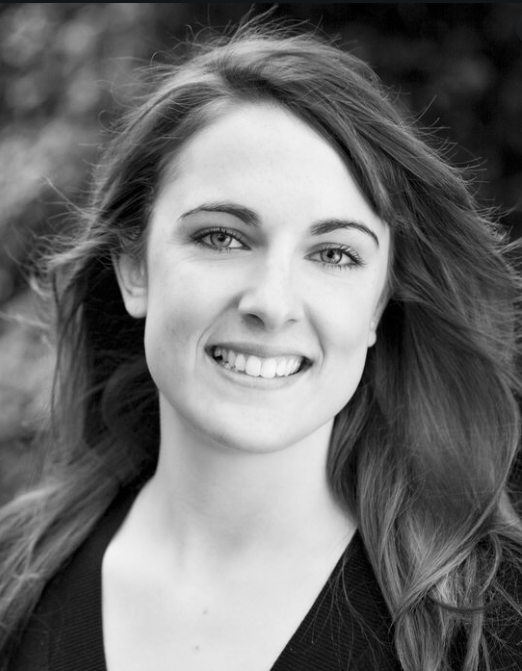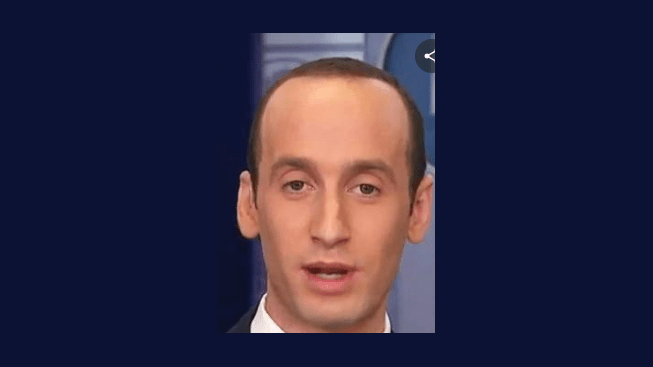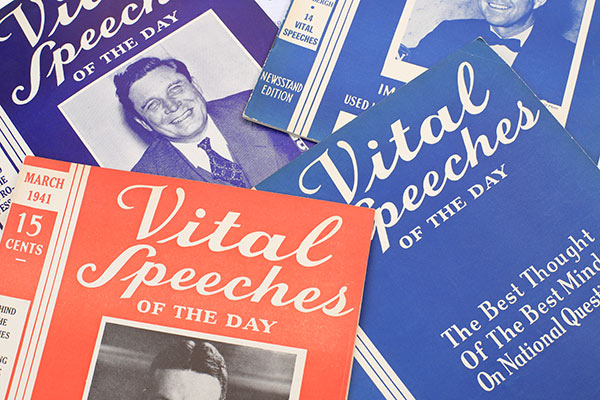Meet “the anti-speechwriter,” profiled in Forbes
March 10, 2021
Speechwriters need to defend their territory against Susie Ashfield and other speaking coaches, who minimize the importance of ideas, and the words that carry them across.
A Tuesday ForbesWomen profile opened with some classic straw-man rhetoric, whether or not its subject knows that rhetorical term by its name.
“There are a lot of speechwriters out there, and they will make you sound very, very good, word-perfect,” says Susie Ashfield. “You won’t flinch from the autocue, and I will leave that speech feeling so disconnected from you, you could’ve just been someone I’ve never met before. My approach is totally different.”

That’s why the former voice-over actor has billed herself “the anti-speechwriter,” on her way to becoming “one of the U.K.’s youngest female speech coaches for CEOs and brands all over the world,” according to Forbes, which claims Ashfield has turned “even the stuffiest of executives and business VIPs into TED Talk-style rockstars.”
How?
By taking them to the pub and getting them slightly drunk, for one thing.
“Generally I find that after a pint and a half, they care less about what the world thinks of them. That deep-rooted fear about what everyone is thinking about them and what everyone is saying about them (which, in reality, doesn’t exist anyway) is suddenly gone. As soon as we’re at that moment, I go, ‘Great. Now you’re relaxed. Tell me what it is you really want to say at your next executive meeting.’ Take them out of the environment, give them something to work with, and just get them to a place where they care a little bit less as to what the world is thinking of them.”
Ashfield also advises speakers, especially women, to cut long intros and get straight to the point. She advises leaders to set reasonable expectations for a speaking opportunity. And she advises speakers to focus on the needs of the audience rather than on themselves.
Eureka! Ashfield sounds like a recent graduate of the PSA’s Speechwriting School.
And sorry to sound like a dowdy old speechwriter here. But, like many speaking coaches—and many speechwriters, who have ceded too much territory to the tyranny of TED—what Ashfield doesn’t talk much about is the importance of introducing novel ideas, and the crucial importance of using precise words to get unfamiliar or even disagreeable notions across to audiences that need to hear them, whether they know it or not.
In my book An Effort to Understand, I have a section titled, “An Empty Limousine Pulled Up, and America’s Leaders Got Out (and Read Prepared Remarks).”
The main problem has never been the prepared remarks.
The main problem has always been the empty limousine.
There’s nothing wrong with what Susie Ashfield does to help speakers find their authentic stage persona.
But the first, and the essential role is the speechwriter’s, in helping speakers find, organize and powerfully articulate their ideas.
Speechwriter, don’t let anyone tell you different—you, included.




Speaking of getting to the point, I have no clue what this means: “You won’t flinch from the autocue, and I will leave that speech feeling so disconnected from you, you could’ve just been someone I’ve never met before.”
I’ve no doubt that clients who are a little tanked will be less uninhibited about their true intentions, but I don’t think my accountant will appreciate me trying to write off a bar tab. Seriously, I think that result (getting to their true message) can be replicated without the booze.
And your reinforcement about the imperative of starting with an inspiring idea and powerfully conveying it are on point—if not on pint. (Or on tap? Sometimes, the puns are just too easy!)
Oops. “less inhibited” or “more uninhibited” not “less uninhibited”